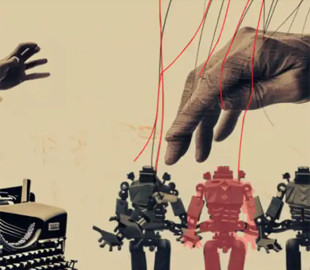Russian propaganda in Europe: a comprehensive strategy of information influence


Russia has long used information operations as an important tool to influence the domestic politics of European countries. Social networks have become an ideal environment for spreading disinformation, manipulation, and creating an alternative reality that contributes to the Kremlin's strategic goals. Influencers are actively involved in this information war – popular bloggers and content creators who have a significant influence on public opinion.
Messages targeting France: creating distrust of Western governments
In France, the main pro-Russian messages are aimed at creating distrust in the government, NATO and the European Union. For example, in 2023, a narrative about «energy blackmail», allegedly carried out by the EU through support for Ukraine, was actively spread on social networks. One of the key tools was the videos of popular French influencers who claimed that sanctions against Russia harm only Europeans, while Moscow allegedly strengthens its positions.
Another striking case was the campaign against military support for Ukraine. Manipulative messages were spread through social networks that French weapons were «used against civilians» in Ukraine. These statements were based on fake materials published by pro-Russian activists.
Romania: Support for Anti-Western Candidates
In Romania, Russia actively works to discredit Western values and support politicians who openly or covertly take pro-Russian positions. A clear example is the 2024 elections, during which pro-Russian candidate Celin Georgescu became a central figure in information campaigns.
Influencers with large audiences on platforms such as TikTok and Twitter spread messages that Romania allegedly «lost sovereignty» through membership in the EU and NATO. Georgescu was portrayed as “the only leader” capable of restoring the country's “independence”. This strategy allowed the Kremlin to influence a young audience that often distrusts traditional media.
Germany: energy crisis as a tool of pressure
In Germany, Russian propaganda has focused on the energy crisis. Since the start of the full-scale invasion of Ukraine, pro-Kremlin narratives have actively used the thesis that sanctions against Russia are allegedly leading to the «destruction of the German economy».
Of particular note is the campaign aimed at discrediting Germany's «green transition» policy. Social media has spread claims that dependence on Russian gas is the “only real option” for ensuring energy security. Such messages were amplified through the support of popular bloggers and even local politicians who openly criticized government decisions.
Italy: Cultural Messages and Historical Nostalgia
In Italy, the Kremlin is playing on historical and cultural proximity, using messages about “traditional values” as a counterpoint to “Western decadence.” Pro-Russian influencers are actively spreading content that romanticizes Russia as a country that “defends the traditional family” and opposes the “aggressive liberalism” of the West.
This strategy has found support among a segment of the Italian audience that opposes social reforms related to LGBTQ+ rights and gender equality policies. Such messages have become particularly widespread through the Facebook platform, where influential Italian bloggers create videos that gain hundreds of thousands of views.
How Europe can fight back?
The situation requires coordinated action at the European Union level. First, it is necessary to strengthen monitoring of social networks in order to identify sources of disinformation and block them at an early stage.
Second, it is critically important to develop digital literacy among Europeans. Citizens need to understand how to recognize manipulation and verify the reliability of information sources.
Finally, EU member states should invest in independent media and the creation of quality content that can become an alternative to fake news and propaganda.
Russian information warfare is a serious challenge, but joint European efforts can reduce its impact and protect the continent's democratic values. Every case of Russian propaganda is a lesson that EU countries should take into account in order to be better prepared for a new information attack in the future.
Recent Posts
An unexpected confession of Roznerski about Cichopek. So she assesses her
Roznerski surprised with his confession about Cichopek. His opinion says everything. < img src =…
On May 10 he will bring a meeting with the past. For these three zodiac signs it can be a breakthrough day
Not every step forward means escape from what was. < img src = "https://zycie.news/crrops/de2fdb/620x0/1/0/2025/05/09/nkpuqkticr5l2t5a5a5aqskxkzklvbxshfqwqbbz.png" alt…
Sławomir Wałęsa rested next to his brother. Moving farewell with the participation of Lech Wałęsa
Sławomir Wałęsa rested at the Srebrzysko cemetery. < img src = "https://zycie.news/crrops/172055/620x0/1/0/2025/05/09/hoaomebddqvzxyts11k3RSTFCFA6O2KDCIV78TG.JPG" alt = "Lech…
For these three zodiac signs, difficult moments are coming. Betrayal may come up close
Trust is one of the most valuable gifts that we can offer to other people.…
Supercomputer Colossus Mask for AI has worked full and needs energy like a big city
< img src = "/uploads/blogs/6e/99/ib-FSC93jmvr_ea2a6bb1.jpg" Alt = "Supercomp ' < p > < p _ngcontent-serverApp-C69…
In Belarus detained the younger brother of the prisoner Radio Liberty Losik
< IMG SRC = "/Uploads/Blogs/D4/E5/IB-FSC9IN825_37C6FC93.jpg" Alt = "in Belarus detained the younger brother of prisoner…